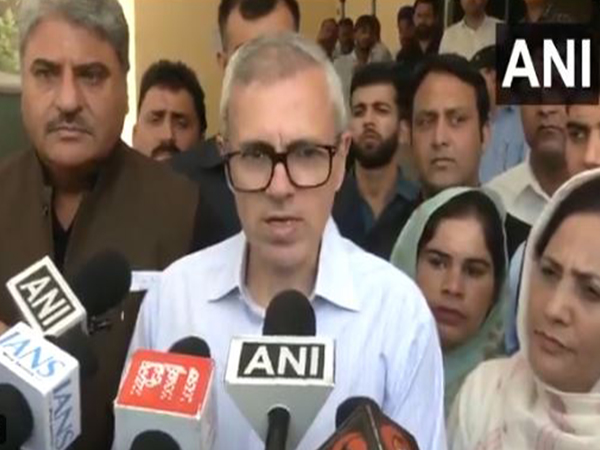Health literacy is important for heart failure patients: Study
May 31, 2020

Washington D.C. [USA], May 31 : Assessing and intervening upon an individual's understanding of their own health could improve heart failure outcomes, according to research published in JACC: Heart Failure.
Heart failure is a chronic condition that requires patients to engage complex self-management skills to monitor weight and blood pressure, control glycemia, stick to drug and diet guidelines, and occasionally lose weight and exercise.
Therefore, greater attention has recently been given to health literacy, which is defined by the authors of this study as "the degree to which individuals have the capacity to obtain, process and understand basic health information and services needed to make appropriate health decisions."
Previous studies have suggested that low health literacy among patients with heart failure could be associated with a higher risk of mortality, hospitalizations and emergency department visits, but results have been inconsistent.
Researchers in this study sought to determine the effect of health literacy on mortality, while adjusting for important potential confounders, on hospitalizations and emergency department visits among heart failure patients, the first meta-analysis of its kind.
Researchers, with the assistance of a medical librarian, conducted a systematic review across EMBASE, MEDLINE, PsycInfo and EBSCO CINAHL databases from inception to Jan. 1, 2019. Both observational and interventional studies evaluated the impact of health literacy among patients 18 years or older with heart failure on mortality, hospitalizations and emergency department visits for all causes.
Interventional studies evaluated interventions among patients with heart failure who had low health literacy. Among the observational studies, 9,171 heart failure patients were included, of which 2,207 (24 per cent) had inadequate or marginal health literacy.
In the studies reviewed, health literacy was assessed using objective or subjective measures--objective health literacy measurement tools evaluate how much the patient comprehends medical information and subjective measurement tools evaluate how much the patients think they understand.
The researchers found that low health literacy was associated with higher unadjusted risk for mortality (RR: 1.67, 95 per cent CI: 1.18, 2.36), hospitalizations and emergency department visits. In adjusted analyses, low health literacy remained statistically associated with mortality and hospitalizations, but no correlation was found for emergency department visits.
Among the four interventional studies, two effectively improved outcomes for heart failure patients with low health literacy.
"Our findings showed that an inadequate level of health literacy is associated with increased risks in mortality and hospitalization among patients with Heart Failure," said Lila J. Finney Rutten, PhD, an author of the study and professor of health services research in the Department of Health Sciences at Mayo Clinic in Rochester, Minnesota.
"Identifying health literacy as a factor that affects health outcomes and measuring its effect on patients with Heart Failure is essential to allocate more resources for, and research on, interventions to improve health literacy," Rutten added.
Study limitations include the exclusion of publication bias evaluation due to the small number of studies for each outcome, health literacy studies were evaluated with different tools, which could limit comparability, and uncertainty if a health literacy assessment was done in an outpatient or inpatient setting, which may have influenced measurement.




















